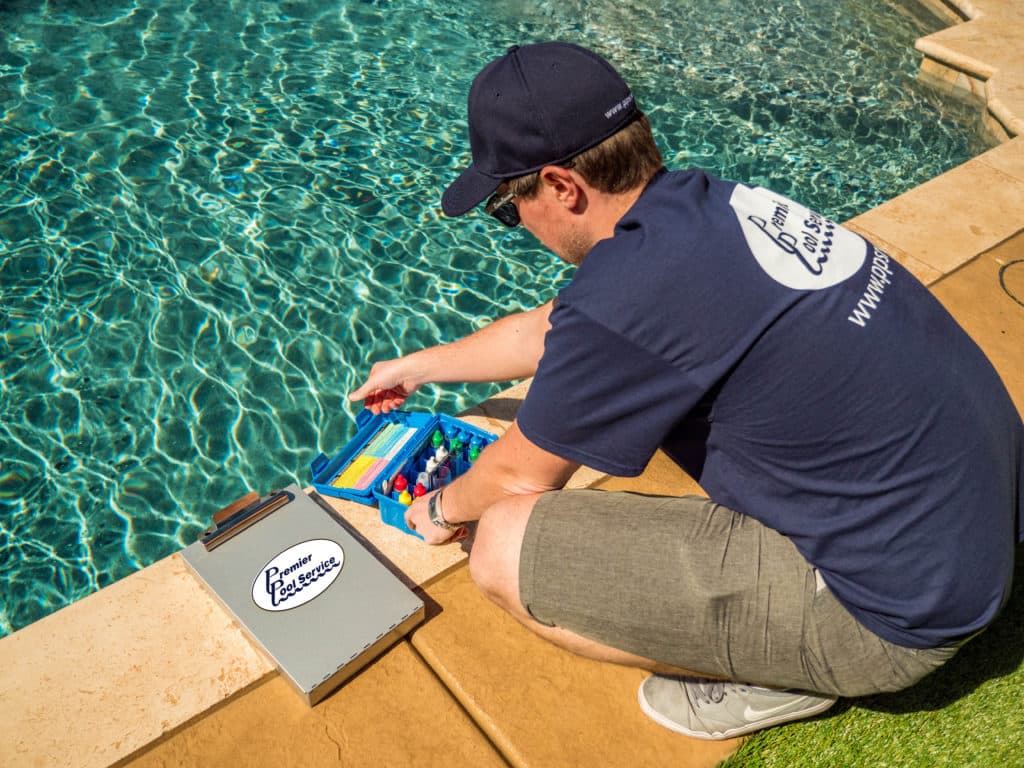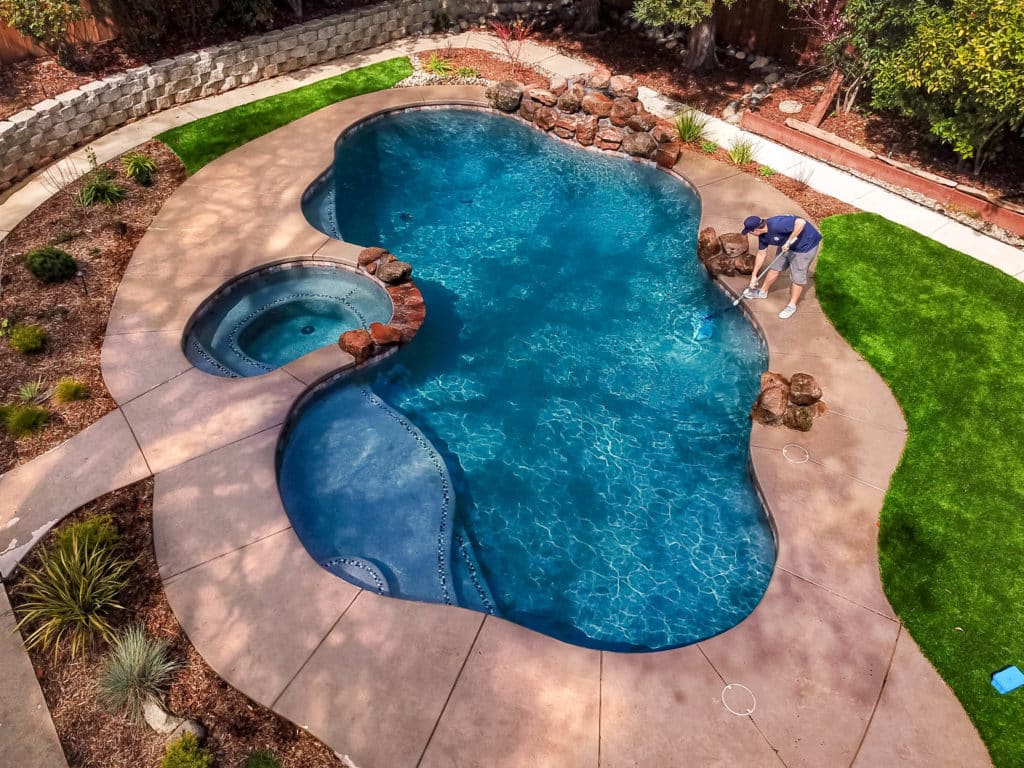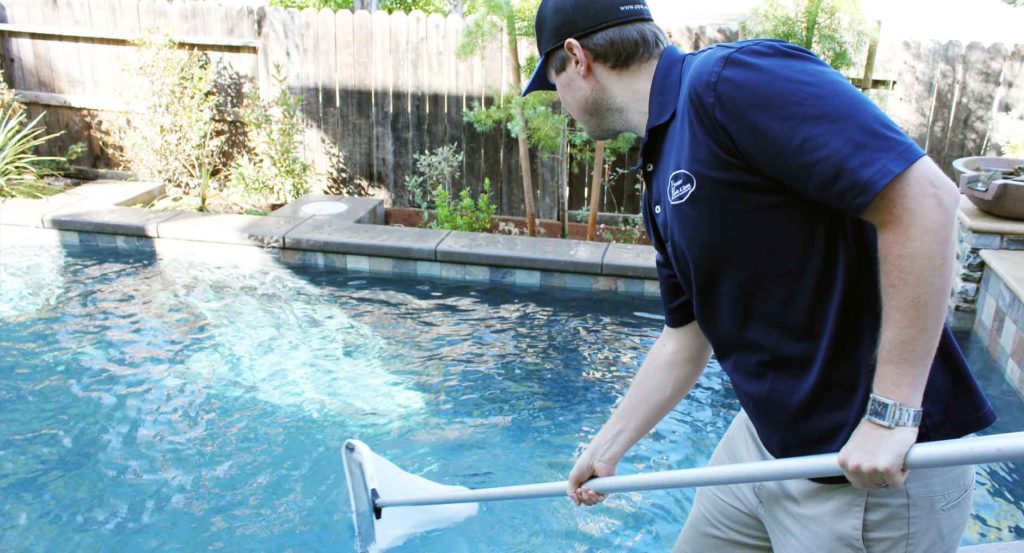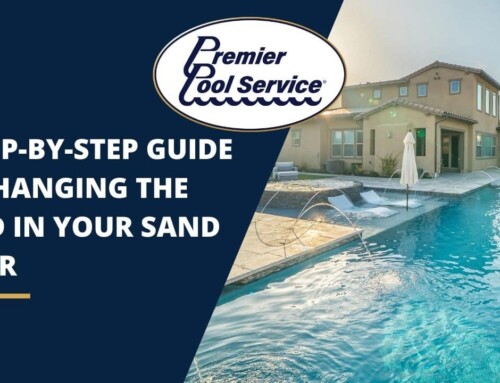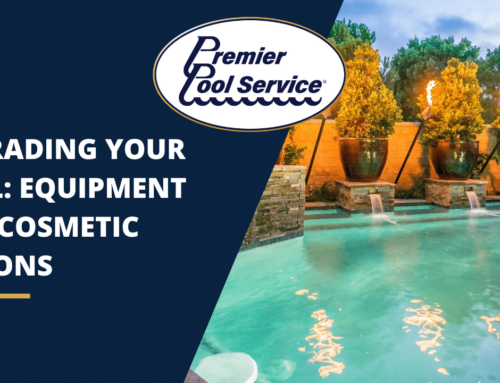Pool owners in El Dorado Hills, CA have no interest in dealing with algae bloom or swimmer’s ear. Having the proper water chemistry is important if you want to stay away from issues like these. In this article, we will help you understand pool chemicals and water chemistry so you can keep your pool clean and chemicals balanced.
Water Chemistry to Keep Your Pool Bright & Clean
If you are a proactive pool owner, you understand the importance of water chemistry. Once you understand how it works with your pool, you will be able to keep your pool pristine without any confusion.
Chlorine
While chlorine might not always smell the best, it is a necessary tool to keep your pool clean. Chlorine is the best way to keep bacteria and microorganisms under control so you don’t have to worry about them.
There are two types of chlorine – free chlorine and combined chlorine. You need to have enough free chlorine in the pool to treat the impurities mentioned above. The free chlorine will bind to these elements to become combined chlorine. If you only have combined chlorine in your pool, your pool is now unprotected.
PH – Acidity & Alkalinity
When you are looking at your water chemistry, your pool is either going to have too much alkaline or it is too acidic. The pH scale goes from 0 to 14. The lower end of the scale is the acidic level and the upper end is alkaline. You want to have your pool at the midpoint of 7.2 to 7.8 for the best swimming environment.
As a pool owner, you have most likely found out that your water chemistry can be in flux a great deal of the time and while you can take care of these issues yourself, many people opt for a pool service to take care of the tedious work.
Phosphates & Algae
Phosphates (PO4) are perfect for nourishing plants, but this is not your goal in your pool. You want to discourage any growth in your pool. If your phosphate level gets too high in your water chemistry, you are going to find algae blooms going wild in your pool. This means you need to routinely test your pool and use phosphate removers as necessary.
Calcium Hardness
Your calcium hardness level should be at 200-400 ppm in your pool chemistry. While you do not need to test for calcium hardness as often as alkalinity and pH, it is still an important part of your water chemistry that you need to check up on.
Cyanuric Acid
Cyanuric acid which is known as CYA is often used in water chemistry because of the bonding it does with chlorine which makes them less vulnerable to the sun’s ultraviolet rays. If CYA is not present, rays of sun beating down on your pool can cut chlorination by 90% in a short two hour time span.
If you don’t feel like becoming a chemist, you may want to hire a pool service to take care of your water chemistry for you.

